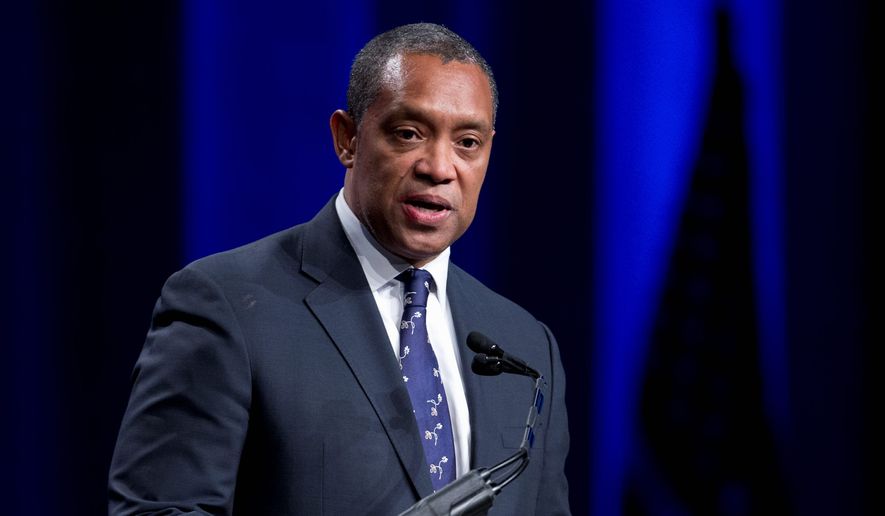D.C. lawmakers are considering sweeping proposals to strengthen the city’s campaign finance laws — but not likely in time to affect the 2018 election season.
Several bills, including one introduced at the behest of D.C. Attorney General Karl Racine, target campaign contributions from businesses that contract with the District.
D.C. Council member Elissa Silverman, with four other co-sponsors, introduced the “Clean Elections Amendment Act of 2017,” which she says would ensure that political action committees are independent and not coordinating their efforts with those of the candidates they support.
“If an outside group gets fundraising assistance from a candidate or officeholder, republishes their campaign materials, sends political mailings or publishes ads after discussing them with the candidate, or shares key personnel with a campaign, the group clearly isn’t truly independent and shouldn’t be used to circumvent our contribution limits on campaigns,” said Ms. Silverman, at-large independent.
The legislation also specifies that only people, not organizations, can contribute directly to candidates.
“This will make the way campaigns are funded much more transparent and accountable to residents and businesses. Entities seeking to influence elections can’t hide behind a registered agent or PAC,” Ms. Silverman said.
The Government Contractor Pay-to-Play Prevention Amendment Act of 2017, introduced by D.C. Council Chairman Phil Mendelson and co-sponsored six other lawmakers, would tighten regulations that bar certain contractors from donating to candidates.
It would direct city contracting officers to obtain from contractors sworn statements that they have obeyed campaign finance laws, under penalty for perjury. It also would bar businesses from city contracts greater than $100,000 if they provide financial donations to any elected official, candidate, committee affiliated with a candidate or political action committee.
Mr. Racine has offered the most stringent measure. The Campaign Finance Transparency and Accountability Amendment Act would close a loophole that currently allows unlimited donations to political action committees in nonelection years, and would prevent anyone who donates to a campaign or PAC from doing any major business with the city for two years.
“This proposal adds significant disclosure requirements and would make our campaign finance laws among the strongest and most transparent in the nation,” Mr. Racine said. “District residents have made it clear that they are sick and tired of the appearance of pay-to-play politics, and I have again introduced this legislation in an effort to reform our laws while respecting constitutional limits.”
The bill was first introduced last year and received a public hearing, but it died in committee. Mr. Racine reintroduced the legislation last week.
Council member Charles Allen, Ward 6 Democrat, is the new chairman of the Judiciary Committee, which will hold hearings on the campaign finance bills. Mr. Allen himself has signed on as a co-sponsor for several of the measures, signaling he could help shepherd them through committee.
However, it is unlikely that any of the bills could be enacted in time to be applied to the 2018 elections for mayor, council, attorney general and other offices. The Judiciary Committee is likely to become bogged down with reform proposals for how the city’s criminal justice system deals with young violent offenders under the District’s Youth Rehabilitation Act.
All D.C. legislation must undergo rounds of public hearings, committee markups, amendments, two votes in the council, the mayor’s signature and a 30-day congressional review before becoming law.
Ms. Silverman said that reforming campaign finance isn’t just about tightening laws and restricting contributions.
“We need to put an end to the perception — and sometimes unfortunate reality — of pay-to-play politics in the District of Columbia,” she said.
“Across the city, voters say they get the sense that money is all that matters in campaigns, and that means their voice and vote is meaningless because they can’t afford to write $500, $1,000 or $2,000 checks to candidates or unlimited amounts to independent expenditure groups.”
• Ryan M. McDermott can be reached at rmcdermott@washingtontimes.com.




Please read our comment policy before commenting.